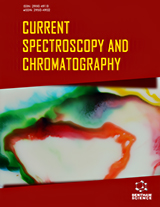Abstract
Background: The interest in breath analysis for non-invasive disease diagnosis of the scientific community has been increased over the past decade. This is due to the exhalation of prominent volatile organic compounds (VOCs) corresponding to the metabolic activities in the body and their concentration variation. To identify these biomarkers, various analytical techniques have been used in the past and the threshold concentration is established between a healthy and diseased state. Subsequently, various nanomaterials-based gas sensors are being explored for their demand in quantifying these biomarkers in real-time, low cost and portable breathalyzers along with the essential sensor performances.
Methods: We focus on the classification of graphene derivatives and their composites’ gas sensing efficiency for the development of breathalyzers. The review begins with the feasibility of the application of nanomaterial gas sensors for healthcare applications. Then, we report the gas sensing performance of various graphene derivatives/semiconductor metal oxides (SMO) binary nanocomposites and their optimizing strategies in selective detection of biomarkers specific for diseases. Finally, we provide insights on the challenges, opportunities and future research directions for the development of breathalyzers using other graphene derivatives/SMO binary nanocomposites.
Results: On the basis of these analyses, graphene and its derivatives/metal oxides based binary nanocomposites have been a choice for gas sensing material owing to their high electrical conductivity and extraordinary thickness-dependent physicochemical properties. Moreover, the presence of oxygen vacancies in SMO not only alters the conductivity but also accelerates the carrier transport rate and has an influence on the adsorption behavior of target analyte on the sensing materials. Hence, researchers are in search of ultrathin graphene and metal oxide counterpart for high sensing performance.
Conclusion: The impressive properties of graphene derivatives and SMO binary nanocomposites compared to their bulk counterparts have been uncovered for sensitive and selective detection of biomarkers in portable breathalyzers.
Keywords: Graphene nanocomposites, semiconductor metal oxide nanocomposite, gas sensor, breathalyzer, non-invasive disease diagnosis, breathprint.
Graphical Abstract
[http://dx.doi.org/10.1088/1752-7163/ab1789] [PMID: 30965287]
[http://dx.doi.org/10.1007/s40846-016-0164-6] [PMID: 27853412]
[http://dx.doi.org/10.1038/srep04611] [PMID: 24714440]
[http://dx.doi.org/10.1021/cr300174a] [PMID: 22991938]
[http://dx.doi.org/10.1039/C3CS60329F] [PMID: 24305596]
[http://dx.doi.org/10.1088/1752-7155/7/3/037109] [PMID: 23959840]
[http://dx.doi.org/10.1016/j.diabres.2012.02.006] [PMID: 22410396]
[http://dx.doi.org/10.1016/j.anai.2011.02.016] [PMID: 21624743]
[http://dx.doi.org/10.1088/1752-7155/3/2/027005] [PMID: 21383460]
[http://dx.doi.org/10.1007/BF00378543] [PMID: 3721592]
[http://dx.doi.org/10.1114/1.1630600] [PMID: 14758930]
[http://dx.doi.org/10.1088/1752-7163/ab09ae] [PMID: 30794992]
[http://dx.doi.org/10.1089/dia.2005.7.115] [PMID: 15738709]
[http://dx.doi.org/10.1007/s00216-014-8401-8] [PMID: 25572689]
[http://dx.doi.org/10.1088/0967-3334/27/4/001] [PMID: 16537976]
[http://dx.doi.org/10.1016/j.jchromb.2009.06.039] [PMID: 19595647]
[http://dx.doi.org/10.1186/s40749-015-0010-1]
[http://dx.doi.org/10.1038/sj.bjc.6605810] [PMID: 20648015]
[http://dx.doi.org/10.2217/nnm.11.135] [PMID: 22401266]
[http://dx.doi.org/10.1021/ar400070m] [PMID: 23926883]
[http://dx.doi.org/10.1021/cm800761e]
[http://dx.doi.org/10.1007/s10544-019-0448-z] [PMID: 31797133]
[http://dx.doi.org/10.1557/mrs2010.509]
[http://dx.doi.org/10.1021/ac902695n] [PMID: 20380475]
[http://dx.doi.org/10.1166/sl.2010.1334]
[http://dx.doi.org/10.1109/JSEN.2009.2036050]
[http://dx.doi.org/10.1016/j.proeng.2014.11.254]
[http://dx.doi.org/10.1088/1752-7155/5/3/037110] [PMID: 21896971]
[http://dx.doi.org/10.2217/pme.10.80] [PMID: 29768778]
[http://dx.doi.org/10.1016/j.proeng.2011.12.385]
[http://dx.doi.org/10.3390/s19020270] [PMID: 30641922]
[http://dx.doi.org/10.3390/s17010199] [PMID: 28117692]
[http://dx.doi.org/10.1002/cac2.12030]
[http://dx.doi.org/10.1088/1752-7163/ab0b8d] [PMID: 30818286]
[http://dx.doi.org/10.3390/bios9010043] [PMID: 30884916]
[http://dx.doi.org/10.3390/jcm8020235] [PMID: 30754727]
[http://dx.doi.org/10.1016/j.pmatsci.2014.06.003]
[http://dx.doi.org/10.1016/j.sna.2017.10.021]
[http://dx.doi.org/10.1016/j.carbon.2016.08.040]
[http://dx.doi.org/10.1002/adfm.201702891]
[http://dx.doi.org/10.3390/nano10081485] [PMID: 32751173]
[http://dx.doi.org/10.1016/j.snb.2015.04.062]
[http://dx.doi.org/10.1007/s40820-015-0073-1] [PMID: 30460270]
[http://dx.doi.org/10.1080/10408436.2016.1244656]
[http://dx.doi.org/10.1016/j.aca.2015.02.002] [PMID: 26002325]
[http://dx.doi.org/10.1016/j.trac.2015.02.008]
[http://dx.doi.org/10.1016/j.apsusc.2017.12.090]
[http://dx.doi.org/10.1021/acs.analchem.8b05670] [PMID: 30869871]
[http://dx.doi.org/10.1039/c3ta11774j]
[http://dx.doi.org/10.1038/nature11458] [PMID: 23060189]
[http://dx.doi.org/10.1021/nl304734g] [PMID: 23586702]
[http://dx.doi.org/10.1063/1.4753974]
[http://dx.doi.org/10.1038/nmat1967] [PMID: 17660825]
[http://dx.doi.org/10.1021/nl301714x] [PMID: 22962838]
[http://dx.doi.org/10.1109/TRANSDUCERS.2015.7181084]
[http://dx.doi.org/10.1109/TRANSDUCERS.2017.7994030]
[http://dx.doi.org/10.1021/acsami.7b02533] [PMID: 28846844]
[http://dx.doi.org/10.1016/j.ceramint.2020.01.156]
[http://dx.doi.org/10.1021/acsami.8b22533] [PMID: 30848880]
[http://dx.doi.org/10.1039/C5NR01924A] [PMID: 25978618]
[http://dx.doi.org/10.1063/1.4887486]
[http://dx.doi.org/10.1039/c1jm12987b]
[http://dx.doi.org/10.1016/j.snb.2018.10.032]
[http://dx.doi.org/10.1039/C5RA06696D]
[http://dx.doi.org/10.3390/app7010019]
[http://dx.doi.org/10.1021/acsami.8b15284] [PMID: 30419750]
[http://dx.doi.org/10.1016/j.snb.2017.02.147]
[http://dx.doi.org/10.1016/j.snb.2017.07.083]
[http://dx.doi.org/10.1021/acs.chemmater.5b04850]
[http://dx.doi.org/10.1016/j.snb.2017.11.167]
[http://dx.doi.org/10.1021/am405088q] [PMID: 24456186]
[http://dx.doi.org/10.1016/j.snb.2019.127584]
[http://dx.doi.org/10.1039/c2nr31131c] [PMID: 22868941]
[http://dx.doi.org/10.1016/j.snb.2014.09.005]
[http://dx.doi.org/10.1007/s10853-014-8785-z]
[http://dx.doi.org/10.1039/C4RA13791D]
[http://dx.doi.org/10.1016/j.snb.2016.02.056]
[http://dx.doi.org/10.1016/j.snb.2014.05.086]
[http://dx.doi.org/10.1016/j.apsusc.2017.11.047]
[http://dx.doi.org/10.1021/acsami.7b06461] [PMID: 28825301]
[http://dx.doi.org/10.1109/TED.2018.2846784]
[http://dx.doi.org/10.1039/c3ta11490b]
[http://dx.doi.org/10.1021/acsami.6b12501] [PMID: 27966870]
[http://dx.doi.org/10.1016/j.snb.2017.04.190]
[http://dx.doi.org/10.1016/j.jallcom.2017.09.124]
[http://dx.doi.org/10.1007/s10854-015-4214-6]
[http://dx.doi.org/10.1088/0957-4484/23/20/205501] [PMID: 22543228]
[http://dx.doi.org/10.1039/c2jm16709c]
[http://dx.doi.org/10.1016/j.snb.2015.05.047]
[http://dx.doi.org/10.1016/j.snb.2016.02.134]
[http://dx.doi.org/10.1039/C6RA28379A]
[http://dx.doi.org/10.1038/srep08067] [PMID: 25626399]
[http://dx.doi.org/10.1016/j.cclet.2019.05.006]
[http://dx.doi.org/10.1039/C9NA00048H]
[http://dx.doi.org/10.1016/j.materresbull.2020.110810]
[http://dx.doi.org/10.1039/C4RA10136G]
[http://dx.doi.org/10.1016/j.snb.2016.12.137]
[http://dx.doi.org/10.1016/j.cej.2019.03.254]
[http://dx.doi.org/10.1039/C3TA15180H]
[http://dx.doi.org/10.1016/j.snb.2020.128804]
[http://dx.doi.org/10.1016/j.jallcom.2020.154169]
[http://dx.doi.org/10.1016/j.snb.2019.127306]
[http://dx.doi.org/10.1016/j.apsusc.2020.146158]
[http://dx.doi.org/10.1021/acsanm.8b01924]
[http://dx.doi.org/10.1109/LED.2016.2544954]
[http://dx.doi.org/10.1007/s10854-020-02928-4]
[http://dx.doi.org/10.1016/j.snb.2018.05.097]
[http://dx.doi.org/10.1039/c4nr00196f] [PMID: 24872200]
[http://dx.doi.org/10.1039/C7TC01523B]
[http://dx.doi.org/10.1038/s41598-019-45408-4] [PMID: 31217450]
[http://dx.doi.org/10.1039/C4TB00767K] [PMID: 32261794]
[http://dx.doi.org/10.1016/j.snb.2015.09.021]
[http://dx.doi.org/10.1016/j.snb.2019.127219]
[http://dx.doi.org/10.1016/j.jcis.2017.05.053] [PMID: 28551514]
[http://dx.doi.org/10.1016/j.cclet.2020.01.025]
[http://dx.doi.org/10.1021/ja211683m] [PMID: 22332949]
[http://dx.doi.org/10.1039/c2nr33164k] [PMID: 23325161]
[http://dx.doi.org/10.1088/1361-6528/ab0321] [PMID: 30699385]
[http://dx.doi.org/10.1016/j.snb.2020.128926]
[http://dx.doi.org/10.1088/2057-1976/ab005c]
[http://dx.doi.org/10.1016/j.snb.2019.126687]
[http://dx.doi.org/10.1111/cea.12965] [PMID: 28626990]
[http://dx.doi.org/10.1586/erm.10.112] [PMID: 21405971]
[http://dx.doi.org/10.5194/amt-12-2851-2019]
[http://dx.doi.org/10.1101/2020.06.21.20136523.]
[http://dx.doi.org/10.1021/acsnano.0c05657] [PMID: 32808759]
































